Thanks to all of you who have joined me on my recent Substack live sessions. These live interactions are a great way to connect and interact with all of you. This is most definitely going to become a regular feature of this newsletter. I look forward to broadcasting live from various locations and I plan on inviting guests to talk to as well.
I am going to offer one or two more sessions for free, but after that invitations to join will be sent to paid subscribers only. This is a great time to upgrade. It’s inexpensive and your support will help me to maintain this newsletter as one of my top priorities.
All you have to do to join these live sessions is download the app to your iPhone or Android.
News
It’s encouraging to see continued resistance to public displays of the Lost Cause in places like Charleston, SC, where secession was born. Confederate heritage groups like the American Heritage Association is suing the Charleston County School District for removing a Robert E. Lee Memorial Highway marker from one of its campuses in 2021.
I appreciate the way the editorial board at the Charleston City Paper frames the issue:
So the questions these cases raise for the rest of us aren’t really legal — they’re historical and, yes, moral. How do we tell our city’s story appropriately? What lessons do we draw from its intricate weave of triumph and tragedy, freedom and folly? And which parts do we choose not just to commemorate, but to celebrate as guideposts to a better, brighter future for all our citizens?
I don’t anticipate that we will see much effort to reverse the steps taken in recent years to remove Confederate monuments and other commemorative artifacts from the public landscape, even with the return of Trump to the White House.
A group of political scientists have arrived at a new number of deaths during the Civil War based on a reading of census reports.
When the full set of individual census returns from 1850 to 1880 became available, Dr. Jensen and his colleagues dove in. They used a so-called sex differential method, separating the number of military-age white men born in the United States — since women did not join combat — and then compared 1860 (the year before the war started) with 1870 data (five years after it ended). They found a massive drop-off in the men: 496,332 fewer. After adjusting for soldiers who had not been counted in the censuses — Black men and men born outside the United States — using previous historians’ estimates, they arrived at a final estimate of 698,000 deaths in the war.
I am not convinced that these numbers alone offer anything significant. I agree with historian Caroline Janney, who was interviewed for this piece in the New York Times:
There’s a reason that it’s still with us, there’s a reason that the memory still lingers. Those deaths very much did shape their respective societies, but in a far more complicated and nuanced way than sheer numbers can represent.
Here is the full essay if you are interested in taking the time to read it.
Harriet Tubman has been made a one-star general in Maryland’s National Guard for her service as a spy, scout, nurse and cook during the Civil War.
On June 1, 1863, the Raid on Combahee Ferry made Tubman the first American woman to oversee military action in a time of war. Using information gleaned from her spy network, Tubman worked with Colonel James Montgomery to free more than 750 men, women and children from enslavement on the rice plantations along the Combahee River.
After the war, Tubman struggled to collect compensation for her military service. In a pension application filed around 1898, she described her three years as a “nurse and cook in hospitals” and as “commander of several men (eight or nine) as scouts during the late war of the rebellion.” At the time, she was receiving only a small pension as the widow of Union veteran Nelson Davis. But in 1899, Congress passed legislation that raised Tubman’s pension to $20 a month for her work as a nurse, which she received until her death in 1913.
The state of Texas is facing criticsm for its failure to sufficiently cover the history of slavery in its curriculum.
A kindergarten lesson titled '“Our Great Country,” for example, instructs teachers to tell students that founding fathers like George Washington and Thomas Jefferson “realized that slavery was wrong and founded the country so that Americans could be free.” The passage omits the fact that many of them enslaved people.
A second grade lesson called “Fighting for a Cause” notes that “slavery was wrong, but it was practiced in most nations throughout history.” It does not detail the race-based nature of slavery in America that made it distinct from other parts of the world.
Another second grade lesson covering the U.S. Civil War focuses heavily on Robert E. Lee’s “excellent abilities” as general of the Confederate Army, which fought to maintain slavery, and his desire to find “a peaceful way to end the disagreement” with the North. It does not teach that Lee enslaved people or highlight his racist views that Black people were neither intelligent nor qualified to hold political power.
And on and on and on.
Thanks once again to Terry Johnston at The Civil War Monitor for giving me the opportunity to share some of my favorite Civil War books of the year. It’s never an easy choice. This has been a particularly strong year for Civil War titles and I anticipate next year will be as well.
Do yourself a favor and get a subscription to the magazine. It’s money well spent. I read practically every issue fro cover to cover.
Books
Lesley J. Gordon, Dread Danger: Cowardice and Combat in the American Civil War (Cambridge University Press, 2024).
Jonathan Lande, Freedom Soldiers: The Emancipation of Black Soldiers in Civil War Camps, Courts, and Prisons (Oxford University Press, 2024).
Videos
This is a wonderful segment on Muslims, who fought in the American Civil War.
Ulysses S. Grant would always regret the second charge he ordered in front of Vicksburg on May 22, 1863. The order resulted in heavy casualties with no gain. The wounded included an officer considered the heart and soul of the 72nd Illinois Infantry—Joseph C. Wright. Here's his story.
Never been to the Cedar Creed battlefield. Here’s your chance.
Here is a group discussion about a new book of essays on gaming the Civil War era hosted by the Virignia Center for Civil War Studies at Virginia Tech. Fascinating discussion.
Historian Tim Smith recently talked about the Confederate retreat from Gettysburg in the summer of 1863.
Otis
Clearly upset that his leaves have been raked.




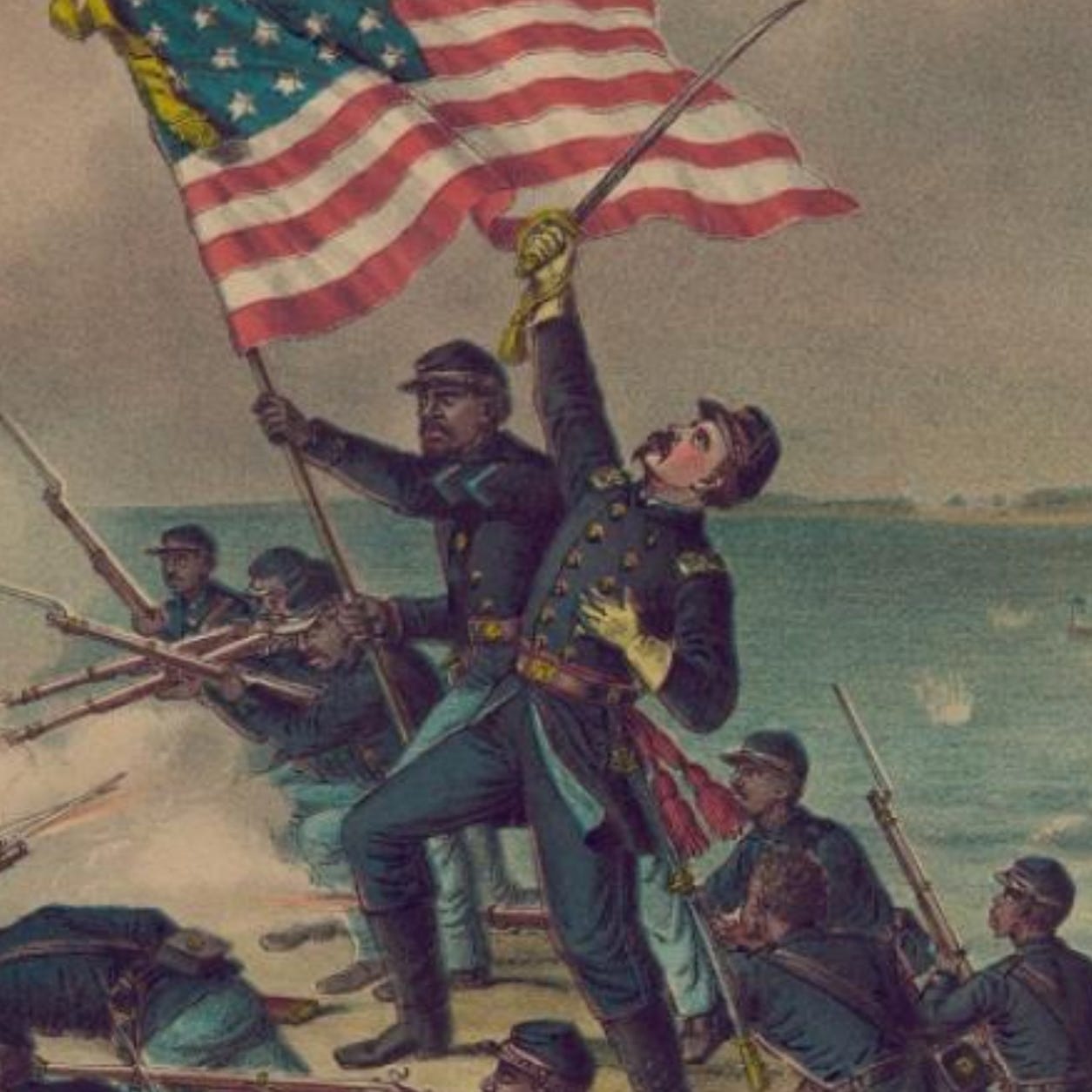
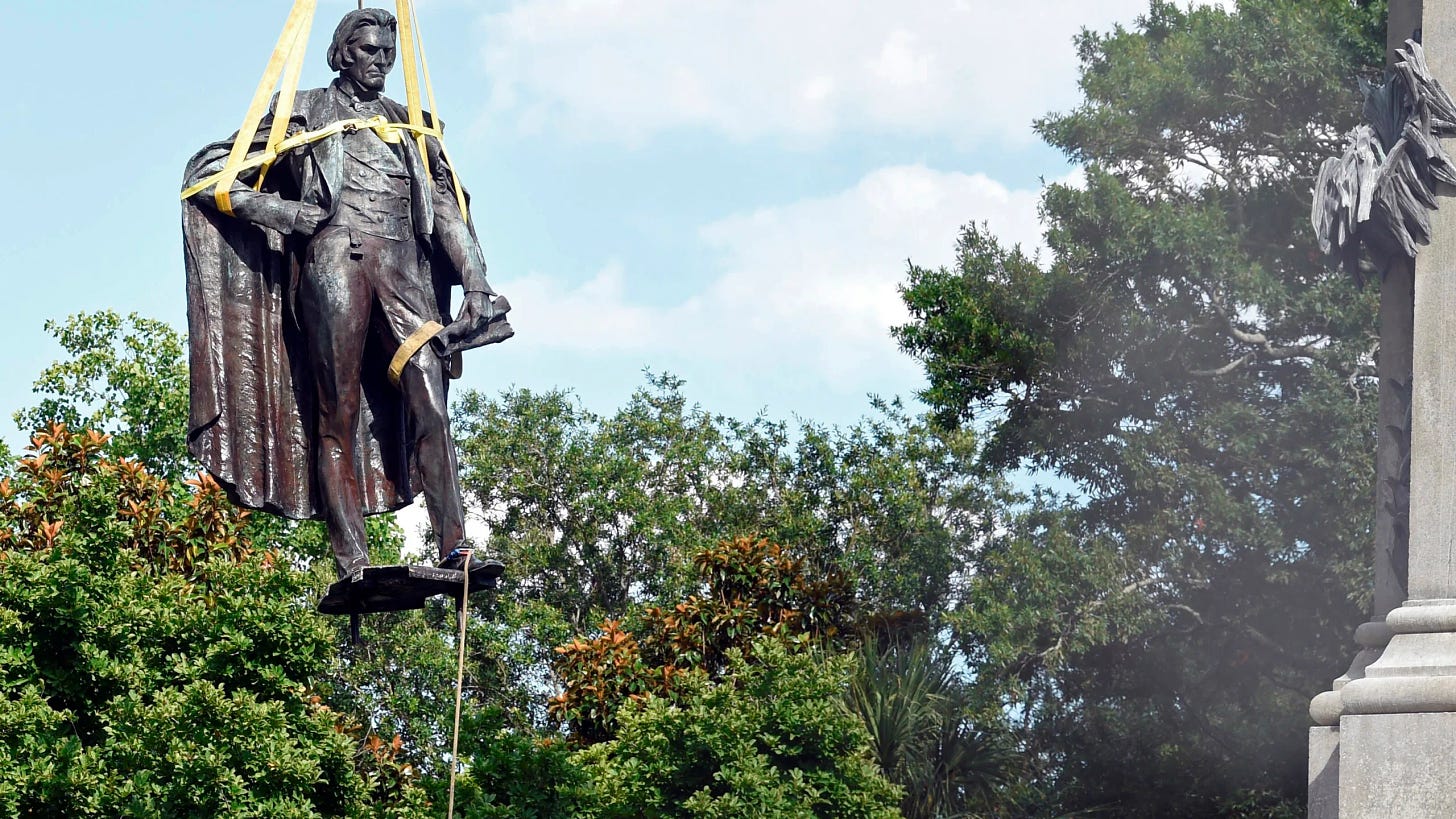
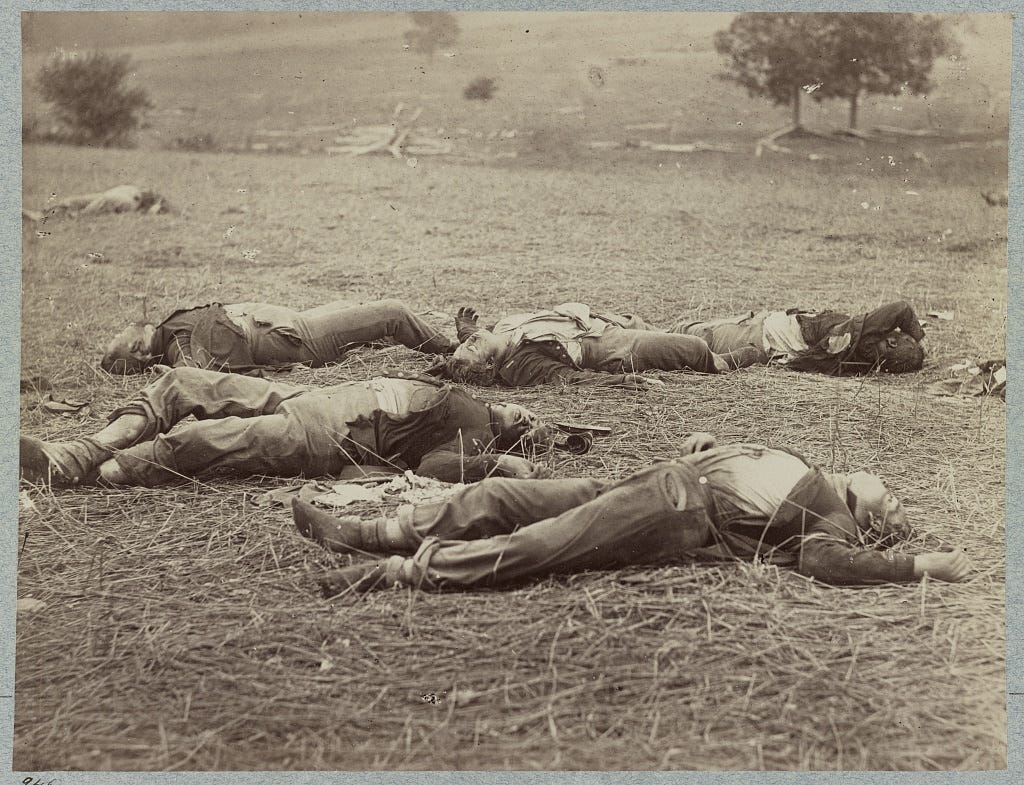
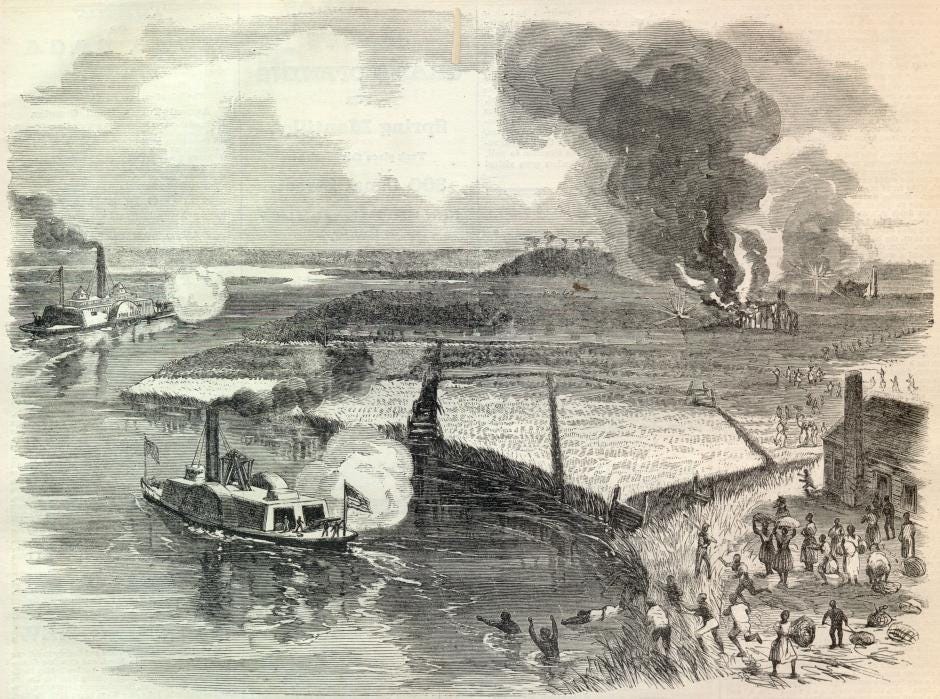
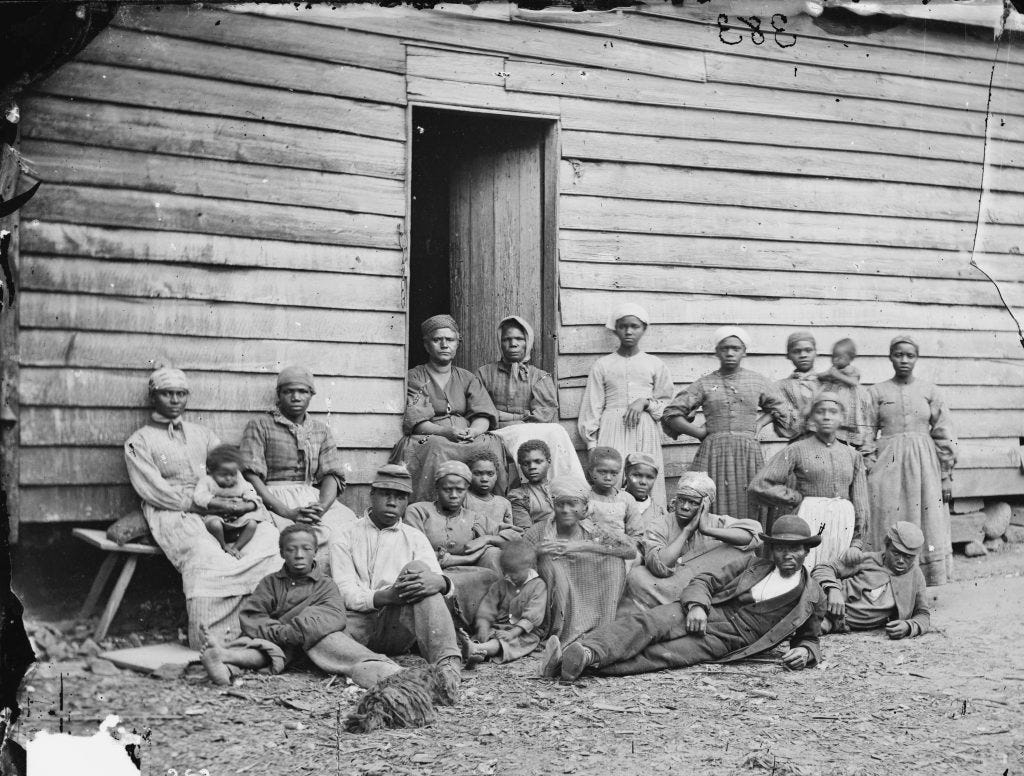
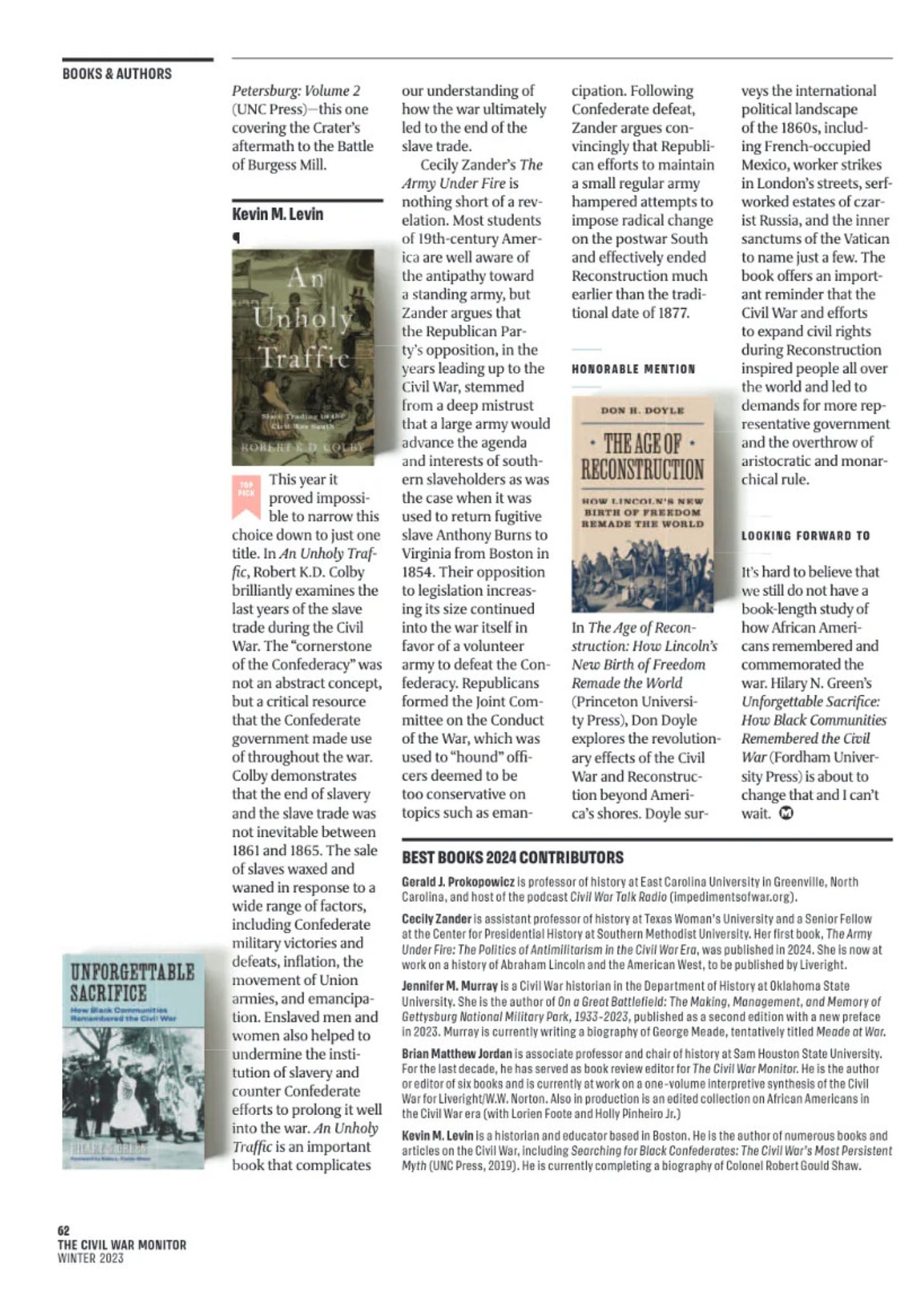

Those lessons about slavery are very disappointing...wow. Even now as a grad student in history I try to think back to what I learned in elementary, middle, and high school...obviously I don't remember everything and it certainly was not all the best but I definitely remember some lessons that went deeper than that.
I wish I could show them my research on the role of White Supremacy in the Revolution. Lol
The publisher of the Charleston City Paper is a long-time friend of mine, so I was pleasantly surprised when I popped on to see what you were writing about today and saw you lead in with a quote from an opinion piece. Although I haven't been involved much of late, I've still been reading and watching posted videos when I can. Could say a lot about Stone Mountain as a 30+ year Atlanta resident (and Georgia native) since I lived 10 minutes from the park and played golf there regularly for a time, but will reserve that for the next time the subject circles around.
In the meantime, I'm one of the very lucky ones in the recent hurricane/flooding here in Asheville, N.C., and am adjusting to a new normal.